You See, Hear, Smell, Touch, And Feel Everything Through Words. You Should Even Feel Your Balance And
You see, hear, smell, touch, and feel everything through words. You should even feel your balance and inner sensations just by reading a script.
When putting together a scene on paper..
Be it in a script or in the early stages of notes, describe as much as you can. It’s better to have more to work with later, and you can always narrow it down in the process. Personally, I like to draw scenes out to help submerge myself into a piece. Working with your senses you can help others do the same when they’re looking at or even just reading your film and or writing.
Describe it as if you’ve never thought about the idea. Like you’re walking into a completely foreign place, because that’s what everyone else will be doing when they see your work
More Posts from Vcsupertramp and Others
What 80% comprehension feels like
I know I should be on my hiatus but this is something I really need to share with you all; those who are intermediate can relate. Some guy called Marco Benevides visually demonstrated what it’s like to only understand 80% of a text
Here is 98% comprehension
You live and work in Tokyo. Tokyo is a big city. More than 13 million people live around you. You are never borgle, but you are always lonely. Every morning, you get up and take the train to work. Every night, you take the train again to go home. The train is always crowded. When people ask about your work, you tell them, “I move papers around.” It’s a joke, but it’s also true. You don’t like your work. Tonight you are returning home. It’s late at night. No one is shnooling. Sometimes you don’t see a shnool all day. You are tired. You are so tired…
bold = uncomprehended 2%
Here is 95% comprehension
In the morning, you start again. You shower, get dressed, and walk pocklent. You move slowly, half- awake. Then, suddenly, you stop. Something is different. The streets are fossit. Really fossit. There are no people. No cars. Nothing. “Where is dowargle?” you ask yourself. Suddenly, there is a loud quapen—a police car. It speeds by and almost hits you. It crashes into a store across the street! Then, another police car farfoofles. The police officer sees you. “Off the street!” he shouts. “Go home, lock your door!” “What? Why?” you shout back. But it’s too late. He is gone.
bold = uncomprehended 5%
Here is 80% comprehension
“Bingle for help!” you shout. “This loopity is dying!” You put your fingers on her neck. Nothing. Her flid is not weafling. You take out your joople and bingle 119, the emergency number in Japan. There’s no answer! Then you muchy that you have a new befourn assengle. It’s from your gutring, Evie. She hunwres at Tokyo University. You play the assengle. “…if you get this…” Evie says. “…I can’t vickarn now… the important passit is…” Suddenly, she looks around, dingle. “Oh no, they’re here! Cripett… the frib! Wasple them ON THE FRIB!…” BEEP! the assengle parantles. Then you gratoon something behind you…
And this really sums up how ***** annoying it can be to be an intermediate speaker. To be able to get the basic of gist of what’s happening, but never be able to get any kind of finer detail. I don’t think I’ve seen such a good illustration of intermediacy in a long time.
Source: http://www.sinosplice.com/life/archives/2016/08/25/what-80-comprehension-feels-like
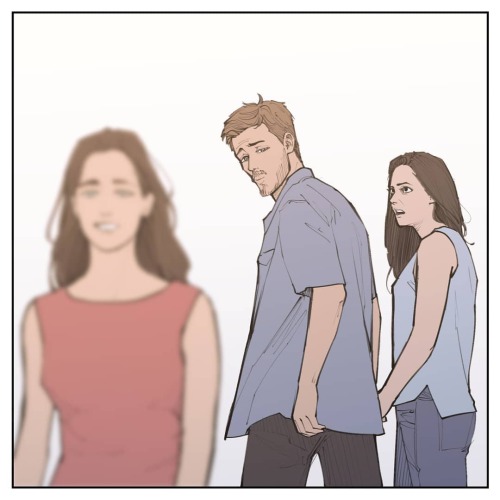
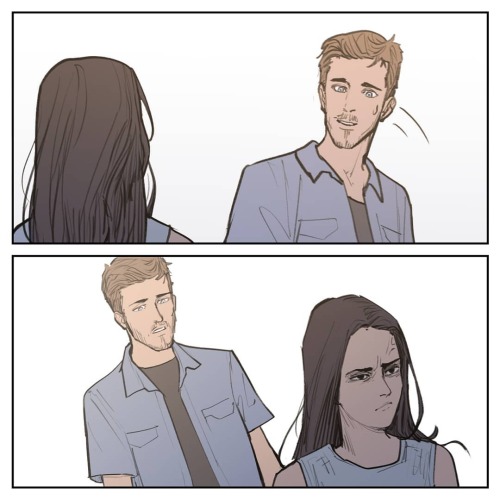
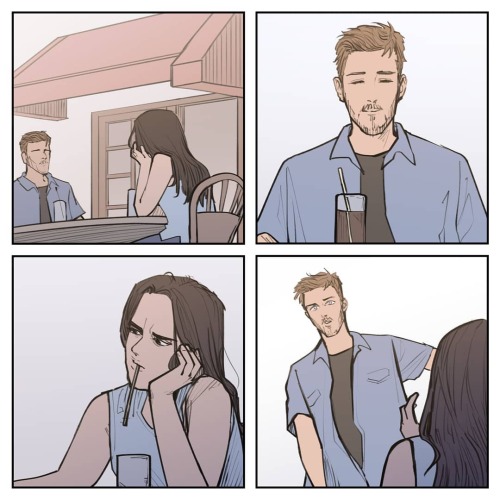
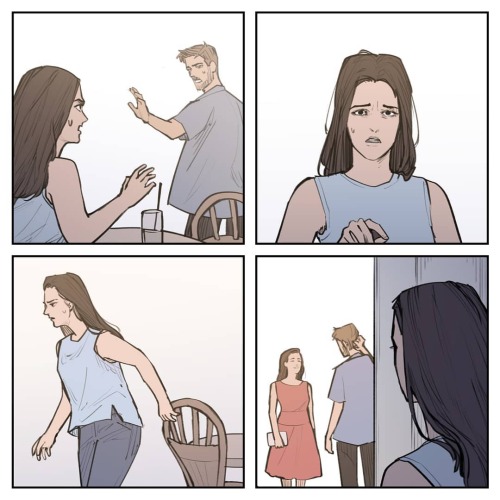
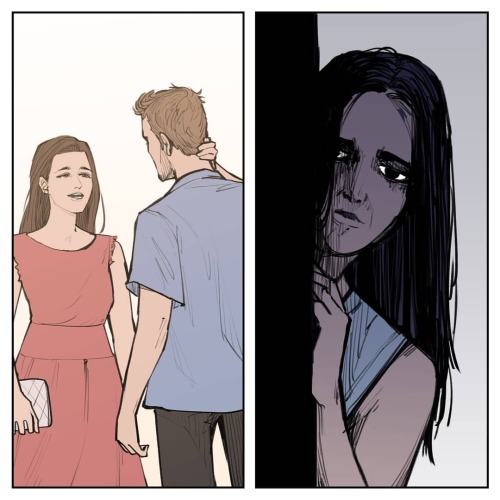


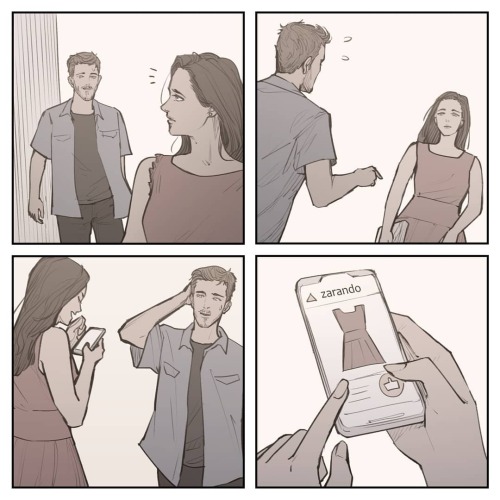
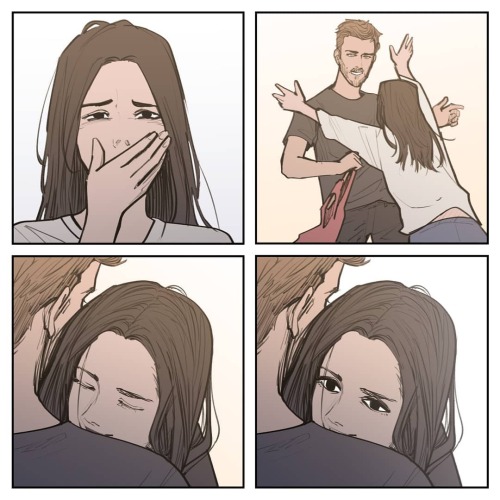
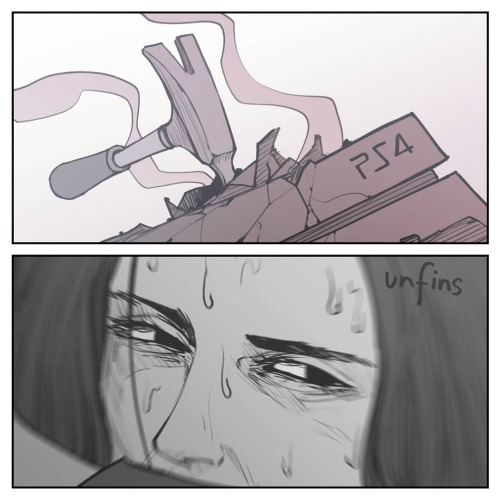
Credit: @unfinstory
Not to critique evolution, but I would think orange and black stripes wouldn’t be as good for camouflage in a forest as, say, green and black would.
Simple, yet original.

There’s a new long-distance travel option on the horizon: a double-decker bus with pods for sleeping. It’s called, simply, Cabin. And it’s an overnight service — like a red-eye — designed for people who love going places, but hate being in transit.

What's your best example of correlation not equaling causation?

A masterpiece.




Pan’s Labyrinth (2006) dir. Guillermo del Toro





About Time (2013) dir. Richard Curtis
-
 ohcoolnice liked this · 4 years ago
ohcoolnice liked this · 4 years ago -
 wait-there-was-a-plan reblogged this · 5 years ago
wait-there-was-a-plan reblogged this · 5 years ago -
 wait-there-was-a-plan liked this · 5 years ago
wait-there-was-a-plan liked this · 5 years ago -
 local-fandom-blog liked this · 6 years ago
local-fandom-blog liked this · 6 years ago -
 mnjr23rd reblogged this · 6 years ago
mnjr23rd reblogged this · 6 years ago -
 mnjr23rd reblogged this · 6 years ago
mnjr23rd reblogged this · 6 years ago -
 mnjr23rd liked this · 6 years ago
mnjr23rd liked this · 6 years ago -
 astoryofafrica liked this · 7 years ago
astoryofafrica liked this · 7 years ago -
 vcsupertramp reblogged this · 7 years ago
vcsupertramp reblogged this · 7 years ago -
 vcsupertramp liked this · 7 years ago
vcsupertramp liked this · 7 years ago -
 dhruvthestar26 liked this · 7 years ago
dhruvthestar26 liked this · 7 years ago -
 jenneralfilm reblogged this · 7 years ago
jenneralfilm reblogged this · 7 years ago
Wanderer, there is no way, you make the way as you go... Just a wanderer enjoying the rollercoaster.
176 posts
